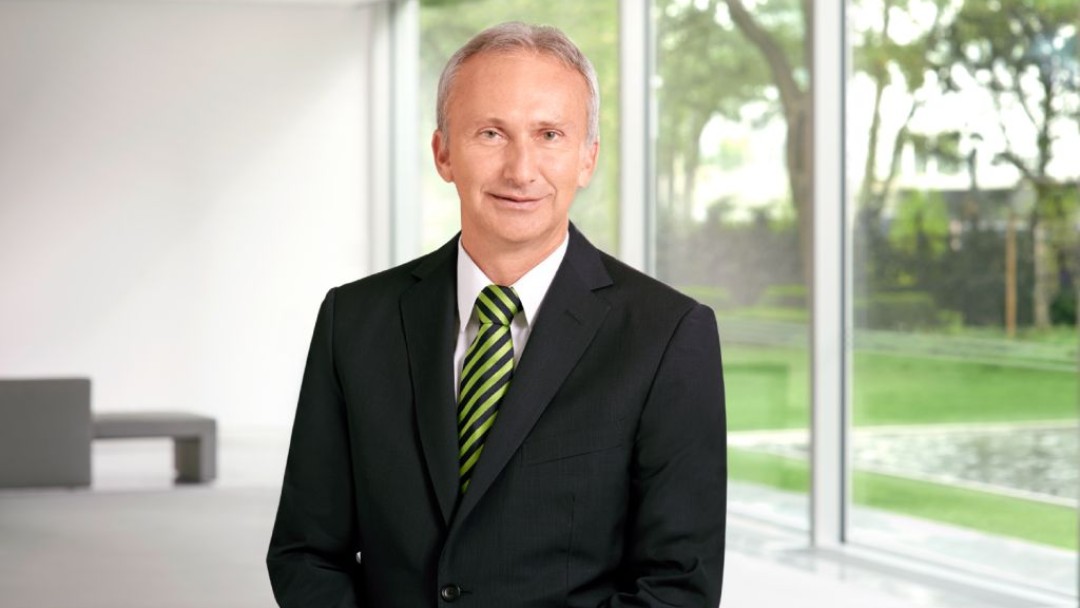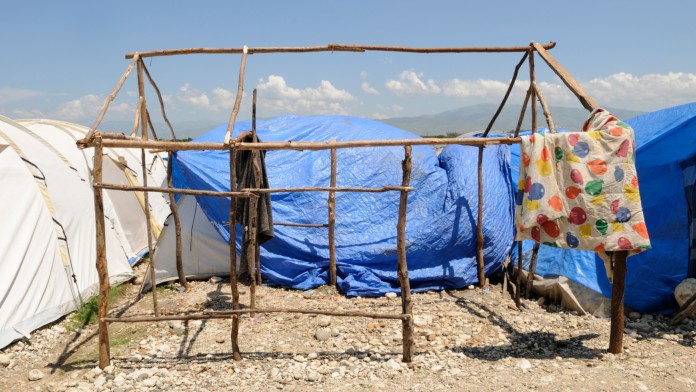News from 2015-03-26 / KfW Development Bank
Helping refugees: The current approaches of KfW
Head of Department Helmut Gauges about the work for refugees
Millions are fleeing from the civil war in Syria. Terror is driving more and more people out of West Africa. And the conflict in Afghanistan is continuing to force men, women and children to seek refuge in neighbouring countries. According to UN estimates, there are currently 56 million refugees worldwide, which is the highest number since World War II. The high number of refugees and displaced people also creates new challenges for development organisations. Helmut Gauges, Head of Department for the Middle East and Africa, describes how KfW Development Bank is tackling this task.
Mr Gauges, the world is seeing increasing numbers of refugees, including in KfW's partner countries. How can KfW Development Bank help refugees?
Helmut Gauges: Crises and refugees are actually nothing new. They have always existed. Today, however, the media is more sensitive and more and more refugees are coming to Europe from faraway regions. Germany is one of the few European countries that are willing to take in Syrian refugees. KfW has always worked on behalf of refugees and our activities are intensifying. We are currently funding 40 refugee aid projects totalling EUR 700 million on behalf of the German federal government. And we are also contributing our expertise to the special initiative "Fighting the causes of refugee movements, reintegrating refugees" of the Federal Ministry for Economic Cooperation and Development (BMZ). Under this initiative, we are implementing eight projects for a total of EUR 135 million.
What are the main countries KfW is active in?
Gauges: Our focus is the Middle East. The war in Syria has caused millions of people to seek refuge in the neighbouring countries of Jordan and Lebanon. We are deploying almost half of our funds there. But there are also conflicts on the Horn of Africa. We are supporting refugees there in the Democratic Republic of Congo, Sudan, Kenya and Ethiopia. But people are also fleeing from West Africa, also because of the rise in terrorism. We provide assistance in this region mainly in Cameroon and Liberia. In Asia, we have a large programme in Pakistan to support refugees from neighbouring Afghanistan.
"Visible success is the top priority"
People usually flee in the face of conflicts and war. They are often left with nothing, usually making rapid assistance necessary. What can KfW do since its strengths actually lie in long-term traditional development cooperation?
Gauges: In acute crises, it is true that immediate assistance is important. It is crucial that food, temporary shelter, drinking water and medical assistance to prevent disease are provided quickly. Visible success is important so that people see that someone is there to help them. These activities are mainly handled by non-governmental and UN organisations that do valuable and excellent work. We work together with these organisations and support them. If aid is needed over the longer term, the focus shifts to official development cooperation. People need permanent housing and medical facilities. We continue to work intensively with the NGOs to make the transition from emergency aid to development assistance.
In countries with armed conflicts, the government structures, however, are often weak and rebels can control large regions. In these cases, KfW's traditional contacts just don't exist. How can KfW Development Bank work in these kinds of places?
Gauges: If we lose our government partners or they are not trustworthy, we intensify our work with NGOs. They are reliable partners for us in crisis areas. The NGOs manage the transition and replace the government structure until competent and legitimate institutions are in place. The goal is then to strengthen and develop these institutions so that the people have confidence again in state structures.
Factoring in risks to help people
It is often difficult to know how conflicts will develop in crisis regions: aid efforts for refugees or returnees are destroyed when the front lines shift or a conflict reignites. How can KfW deal with these kinds of risks?
Gauges: Risk is inherent in development cooperation in crisis areas but our main priority is to help people. The risks must be factored in and the right preparations made. Our standards cannot be as high in crisis regions as they are for traditional DC projects – but it is important the aid reaches people, gives them fast assistance in an emergency and offers new opportunities and prospects in the long term.
At the moment it looks as if there will be more conflicts in the future rather than fewer. The world doesn't seem to be doing better, instead there are more and more conflicts. What does this mean for refugee support?
Gauges: Even if it is difficult and will remain so: one primary objective must be to identify conflicts at an early stage and respond quickly. Many conflicts arise due to poverty and a lack of opportunity that radical groups exploit for their own purposes. If we create new opportunities for people, we can prevent crises and conflicts and fight the causes of displacement.
The interview was conducted by Michael Ruffert.



Share page
To share the content of this page with your network, click on one of the icons below.
Note on data protection: When you share content, your personal data is transferred to the selected network.
Data protection
Alternatively, you can also copy the short link: https://www.kfw-entwicklungsbank.de/s/enzBWrMC.BBbA
Copy link Link copied